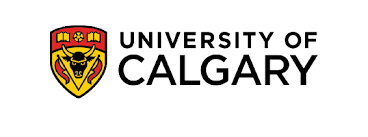University of Calgary students get land-based learning opportunity from block week course
Ablock week course scheduled for the spring semester will offer University of Calgary students a unique learning opportunity.
INDG 506.02 provides an advanced study of how learning is done with the land and will be guided by Stoney-Nakoda Knowledge Keepers.
The course, which will take place in a tipi on one of the campus green spaces, will be taught be Dr. Adela Tesarek Kincaid, PhD, an assistant professor in the International Indigenous Studies program, and Daryl Kootenay, an Îyârhe-Nakoda community youth leader.
“The importance of teaching in this way is that it places Indigenous people in a position to practise, deliver, and create what is taught,” says Kootenay. “It is fundamental so that Indigenous Peoples share what they want to share and teach what they want.”
The course, which will take place from June 5 to 9, has been offered once before, last spring, but as a 300-level course. It is the first of three variations of the course, offering the Stoney-Nakoda perspective, while future offerings of the course will be taught from the Blackfoot and Tsuut’ina perspectives.
“Daryl often invites Elders, Knowledge Keepers, and youth from the Stoney-Nakoda community to lead and guide the course,” explains Kincaid.
By the end of the week, students will be able to understand and practise Indigenous land-based learning approaches, including understanding the stories of the Bow Valley through Stoney-Nakoda storytelling practices and applying traditional teachings to working with animals, including the use of preparing hides to create a parfleche.
“It has been inspiring to witness the planning and preparation for the course. The respectful collaboration between Dr. Kincaid and Daryl Kootenay demonstrates the ideal of walking together in a good way,” says Dr. Craig Ginn, director of the International Indigenous Studies program.
“The course offers a unique experiential opportunity where students learn land-based teachings. It provides a transformative approach to self-reflection and understanding relational ways of knowing, being, connecting and doing.”
Students will have the opportunity to become immersed in song, land-based deep listening, self-reflections, hide scraping and preparation techniques, and a guided vision exercise to create the design for their individual parfleches.
“Daryl leads us through a holistic way of knowing, doing and being during our week together,” says Kincaid.
Kincaid notes a particularly engaging exercise for students in last year’s course was a deep listening activity following which they created communal poems.
Students will be asked to create video or written reflections that will require them to apply course content and teachings to their own lived contexts, worldviews, experiences and assumptions about their connections to the land.
Ultimately, students will get a holistic perspective about learning from the land and animals, and what that looks like from a culturally and locally focused Stoney-Nakoda perspective through collective knowledge sharing.
“This course is designed to work with and learn from local communities, in particular the Stoney-Nakoda, Blackfoot, and Tsuut’ina,” says Kincaid.

